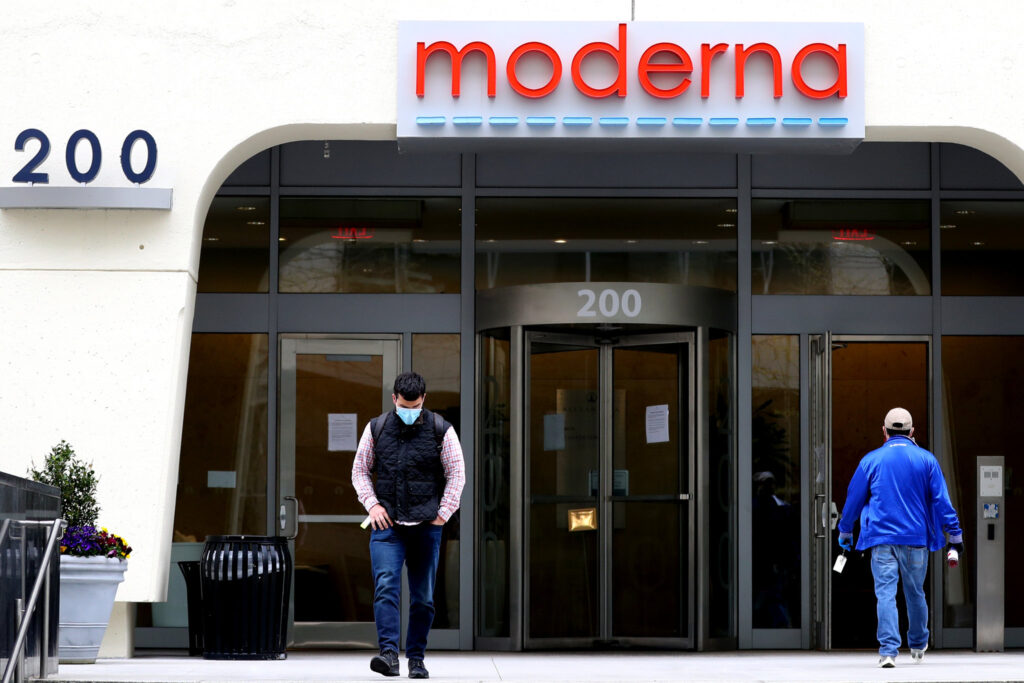Moderna and Merck’s collaborative effort to combat the deadliest form of skin cancer, melanoma, has yielded promising results, according to midstage trial data released on Thursday.
Their experimental cancer vaccine, when used in conjunction with Merck’s blockbuster therapy, Keytruda, demonstrated a remarkable reduction in the risk of death or cancer relapse by 49% in patients with advanced melanoma after approximately three years of treatment.
Moreover, the combination therapy slashed the risk of melanoma spreading to other parts of the body by an impressive 62%.
Moderna CEO Stephane Bancel expressed optimism about the vaccine’s regulatory approval, with potential launches in some countries as early as 2025.
This news sent Moderna’s stock surging by more than 10%, while Merck’s stock experienced a slight dip.
The positive outcomes from this study build upon earlier midstage trial data, which showed a 44% reduction in the risk of death or relapse and a 65% decrease in cancer spreading after two years of treatment with the vaccine and Keytruda.
Notably, the vaccine’s most common side effects were fatigue, injection site pain, and chills.
Bancel anticipates further encouraging results as longer-term data becomes available, expressing excitement about the prospect of four and five-year data.
He noted that the “melanoma curve is flattening,” meaning fewer patients are succumbing to the disease thanks to this innovative treatment approach.
Currently, both companies are conducting a phase-three trial for late-stage melanoma treatment, initiated in July, and exploring the vaccine’s potential benefits for earlier stages of melanoma.
They believe that intervening at an earlier disease stage may enhance the patient’s immune response.
The cancer vaccine, based on the same mRNA technology as Moderna’s COVID-19 vaccine, is tailored to each patient’s tumors post-surgical removal.
It educates the immune system to identify and target specific cancer cell mutations.
Merck’s Keytruda, which is already approved for melanoma and other cancers, is part of a class of immunotherapies designed to disable proteins that help cancer evade the immune system.
The U.S. FDA granted breakthrough therapy designation to the cancer vaccine in February, expediting its development and review.
Moderna and Merck are also evaluating the vaccine’s effectiveness in combination with Keytruda against other types of tumors, including non-small cell lung cancer, with a late-stage trial already underway.
Melanoma remains a leading cause of skin cancer-related deaths, with its incidence rising over the past decades.
In the U.S. alone, approximately 100,000 individuals are expected to be diagnosed with melanoma this year, and nearly 8,000 are projected to succumb to the disease, highlighting the urgent need for innovative therapies like this groundbreaking cancer vaccine.
